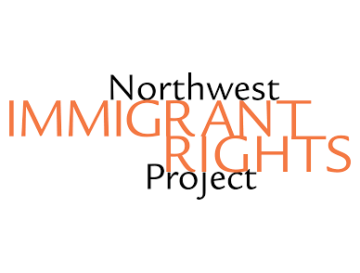 On August 14th, the Department of Homeland Security published a prospective rule which fundamentally changes the longstanding “public charge” policy and sends a message of who is desirable or welcome in the U.S. The final rule, scheduled to take effect on October 15th of this year, will change the way the government makes “public charge” determinations, making it much easier for the government to deny a person an immigrant visa or admission to the United States.
On August 14th, the Department of Homeland Security published a prospective rule which fundamentally changes the longstanding “public charge” policy and sends a message of who is desirable or welcome in the U.S. The final rule, scheduled to take effect on October 15th of this year, will change the way the government makes “public charge” determinations, making it much easier for the government to deny a person an immigrant visa or admission to the United States.
The message is clear. This new rule is meant to deter and intimidate non-citizens and their families, and create additional obstacles preventing them from obtaining lawful permanent residence. See news article here.
It targets children, older applicants, persons with disabilities, persons who lack English proficiency, and persons with low incomes, making it more difficult for them to successfully be lawfully admitted into the United States.
In determining whether someone will be denied admission because they are labeled a “public charge,” the new rule changes what factors immigration officials can consider in making this determination. Now, officials will target factors like age, health, family status, income and resources, education, skills (including English proficiency). Moreover, the new rule penalizes applicants for enrollment in additional public programs, including non-emergency Medicaid, Supplemental Nutrition and Assistance Program (SNAP or food stamps), Federal Public Housing and Section 8 assistance.
However, it is important to remember that this rule is not yet in effect and the fight is far from over. Yesterday, thirteen states, with Washington State taking the lead, have filed a lawsuit challenging this new rule. And at NWIRP, our family services unit will continue to provide free workshops and legal representation to clients and their families whose cases may be affected by this rule.
In the meantime, we encourage you to check out the Protecting Immigrant Families website, which has a wealth of frequently updated resources on public charge for immigrants, their families, and social service providers. In addition, the Immigrant Legal Resource Center provides an important summary of the programs that families may continue to utilize without fear of it impacting their ability to be admitted or obtain lawful status. We will also be posting resources on our website in the coming days.
You can also support our work by making a gift which will be used to defend and advance the rights of immigrants in our communities.
If you are an attorney, you can support NWIRP by contributing to the legal community’s unified Campaign for Equal Justice. Your donation supports NWIRP and the Alliance for Equal Justice.
In solidarity,
Malou Chávez
Leave a Reply